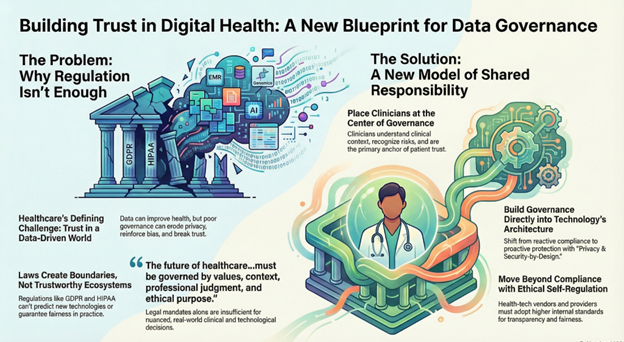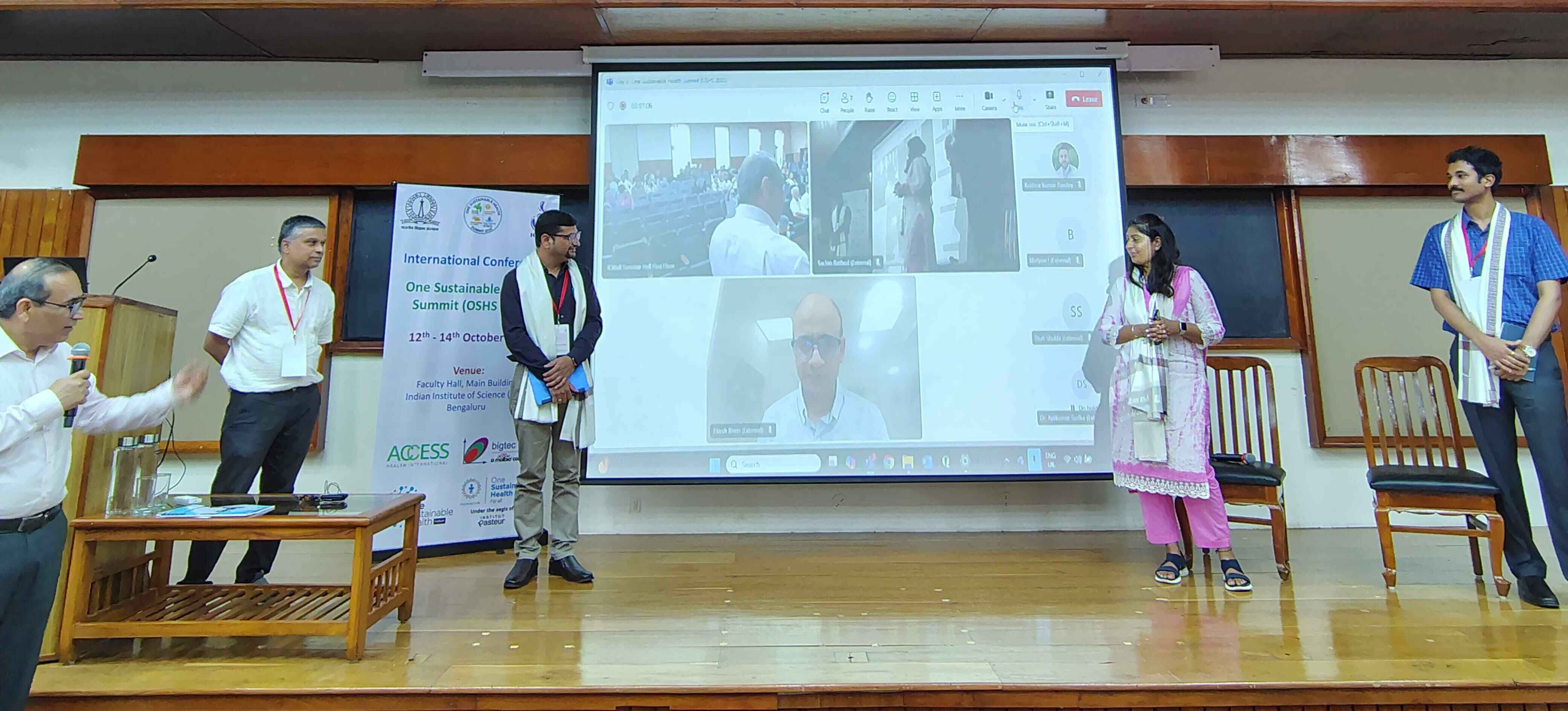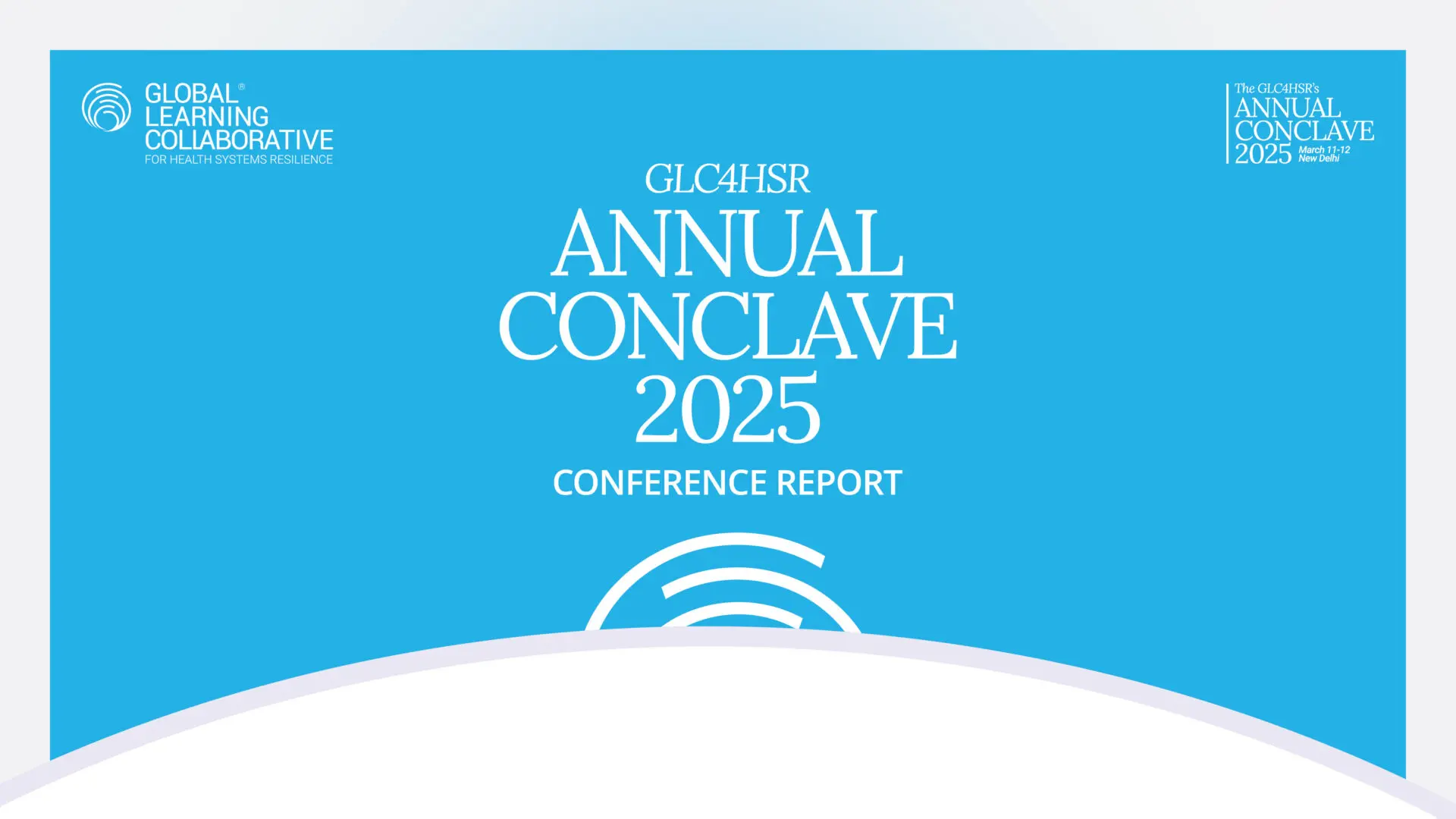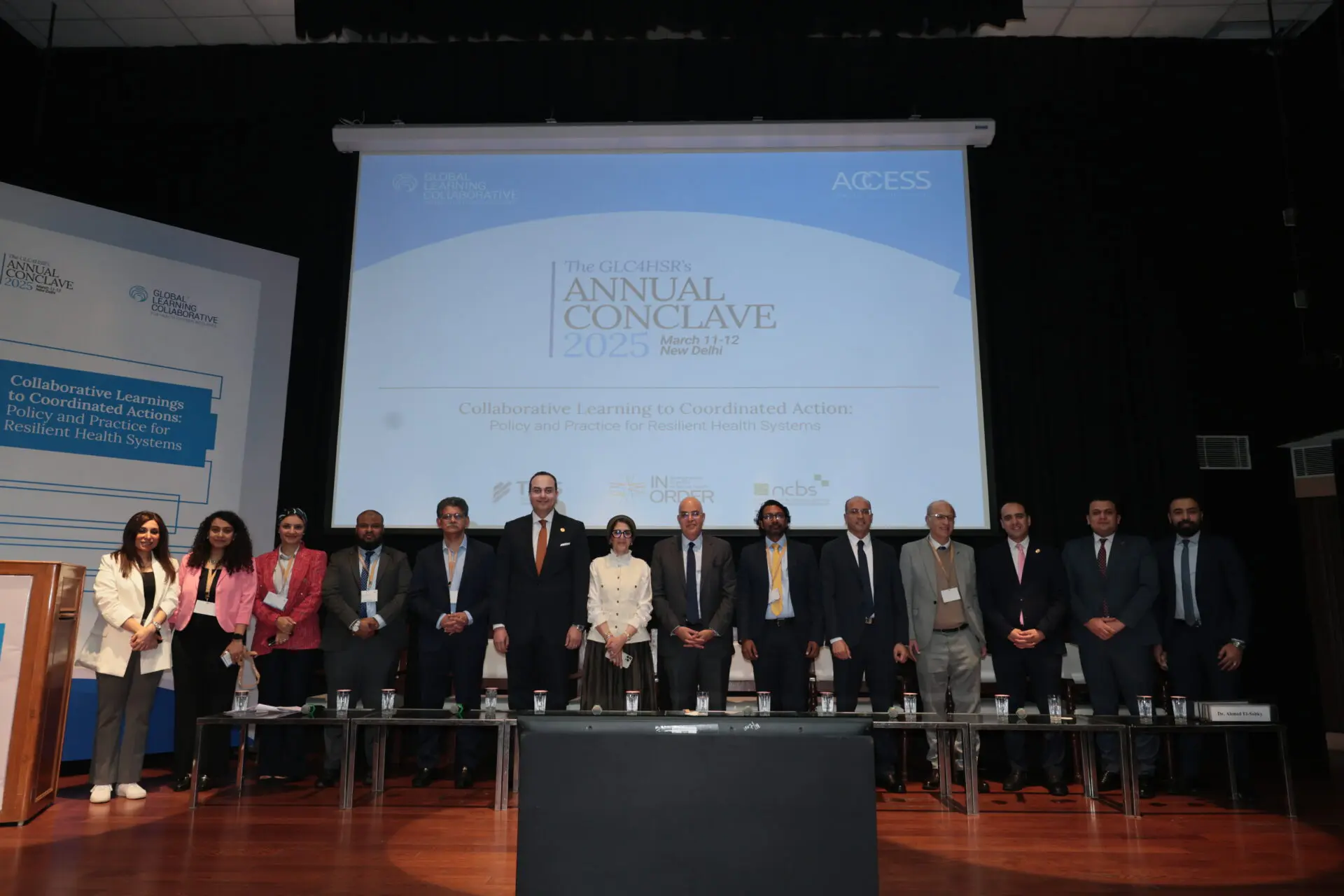GLC4HSR’s collaborative effort to understand and improve health systems assessment
Updates ▪ Aug 30, 2023
The COVID–19 pandemic re-established the need for resilient health systems that are prepared for current and future eventualities. Strengthening the response to health shocks requires us to learn continuously from the systemic gaps that came to the fore and the adaptive innovations that emerged to counter them. The strengthening of surveillance and knowledge-sharing networks during COVID-19 led to the emergence of innovative platforms for data gathering and learning exchange across borders. While several global and regional initiatives emerged to learn from and curb the impact of health shocks, these efforts could benefit from a common platform for collaboration and cross-learning. Thus, was born the GLC4HSR.
The Global Learning Collaborative for Health Systems Resilience is a multi-country platform that facilitates reciprocal knowledge sharing and the co-creation of effective health systems resilience strategies. It does so by bringing together people and institutions from diverse geographies to nurture a culture of learning health systems towards achieving transformation. ACCESS Health International, with initial financial support from The Rockefeller Foundation, is the current global secretariat of the GLC4HSR.
Over the past two years, the GLC4HSR has been evolving a new framework and indicators to assess health systems, through a process of knowledge co-creation and collaborative learning. In this discussion, we delineate the learning processes within the collaborative and the engagement of the members and experts.
Learning Themes of the Collaborative
The GLC4HSR started with four learning themes. These included – surveillance (genomic and public health surveillance of the disease and disruptions by social media or other digital media as surveillance modes), preparedness (how prepared were the systems to handle the travesty they were faced with), rapid response (design of rapid response systems at the national and sub-national levels), and resilience (social security networks for financial protection in emergencies).
We initiated our work with a review of Health Systems Resilience and how it is measured. The study included a detailed review of the literature and interviews with academicians and practitioners. We concluded that the need for a strong Healthcare Provisioning system and a backbone of Leadership and governance are essential to tackle the crisis. Community health is an existing area of priority, while climate change is a growing area of priority. Hence, we included these as our thematic areas.
Our review also emphasized the need for a strong Disease Surveillance system, which emerged as one of our key thematic areas. In this theme, we actively involved the members right from the stage of the study initiation to the final knowledge collateral creation. We have been reviewing the various assessments of surveillance systems across the globe, to ascertain their strengths and weaknesses.
Learning Journey
Our learning journey started with a literature review of the evolution of the concept of resilient health systems. We then embarked on a journey to assess how health systems resilience is measured. Most of the health systems frameworks are planned for normal state and are not adequately designed for health crises of the magnitude we witnessed. Hence, there is a growing need for better indicators of health systems resilience. While the literature review gave us substantial insight into the measurement methods, we needed to understand the practitioners’ point of view on how these frameworks are being implemented. Hence, we conducted in-depth interviews and peer-to-peer learning sessions (P2P) to understand which are the most important areas which ensure resilience.
With the inception of the theme on Disease Surveillance, GLC4HSR had parallelly onboarded 30-plus members. To engage these members, we created a Special Interest Group that took ownership of ideation, review, and brainstorming of the study findings.
With these two projects, we standardized the learning journey for each thematic area. A Technical Facilitator would guide the process and a technical coordinator from the secretariat would ensure that the Technical Facilitator’s vision is translated to knowledge collaterals.
A snapshot of the GLC4HSR Learning journey which can be customized as per the thematic area.
Data repository
Health system resilience data repository provides a centralized location for researchers to securely organize, store, and share data and metadata in a non-proprietary format. The articles and reports which were collected during our review process were organized into the repository. Our members can rapidly access the information on the following themes.
Pandemic threat assessment and their mitigation – Pandemic threat assessments are data-intensive processes and tools to understand preparedness and response to a public health threat due to crisis. It helps to classify populations and individuals based on their vulnerability. Learning from these processes could enable early containment and even pandemic mitigation.
Health systems assessment for pandemic preparedness – Quality health services are pivotal during emergencies and serve as the interface between communities and the health system. For health systems to be resilient, they require quality health services that are delivered prior to, maintained during, and improved upon following an emergency. To become resilient, a health system should prepare for an appropriate level and distribution of human and physical resources, increase capacity to cope with a sudden surge in demand, and development of a motivated and well-supported workforce.
Rapid response systems including surveillance systems – Health systems resilience requires that a health system can predict, contain, and respond to impending outbreaks. Similarly, surveillance is a core public health function that ensures that the right information is available at the right time and in the right place in order to inform public health decisions and actions. Digital Response and systems to be understood, evaluated, and change mechanisms in place towards the pandemic scenarios.
Financial and social protection – Resilient systems must ensure that sufficient monetary resources are held in reserve and must be flexible to reallocate and inject extra funds where and when those funds are needed. Ensuring stability of health system funding through countercyclical health financing mechanisms and reserves also plays an important role in stabilizing the system, as do purchasing flexibility and the reallocation of funding to meet the changing needs of the population after disasters and during pandemics.
The role of leadership – Leadership-level decisions govern the adequacy of the abovementioned systems, from healthcare infrastructure, guidelines, and rapid response, to financing. Pandemics have often carved a way for evidence-based policies and inter-sectoral or organizational coordination. The role of leadership at the local and community levels is crucial during public health emergencies. With a specific understanding of communications across the community and all relevant stakeholders to meet the pandemic scenarios.
In conclusion
Our learning journey is iterative and evolving. We are planning to involve our members as owners of our thematic areas. The team is working on new thematic areas and onboarding experts to improve the depth of each theme. We will keep the quorum posted on new thematic areas, reviews, and cross-learning initiatives through this newsletter.
A collective effort by ACCESS Health team memebers Maulik Chokshi, Dr Anuradha Katyal, Dr Shrikant Kalaskar, Sushma Dsouza, Dr Mehnaz Kabeer, Latika Rewaria, Sreemeena, Satyanarayana, Dr. Krishna Reddy






